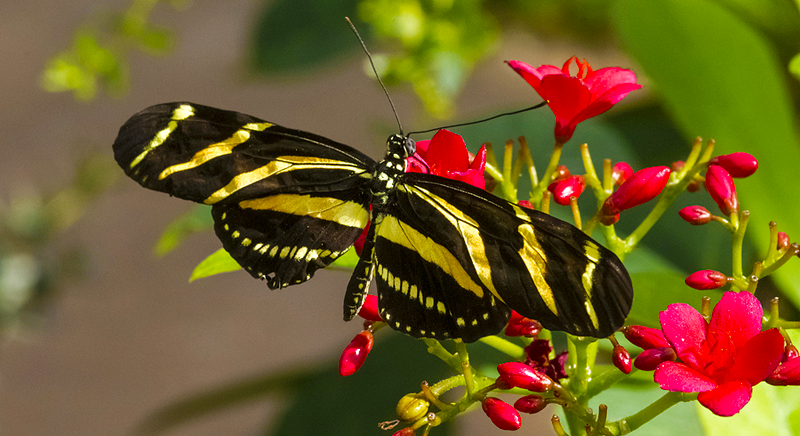
Your Guide to Florida-Friendly Landscaping
Are you familiar with the Florida-Friendly Landscaping concept? Its origins can be traced back to 1991 and the ECO-Neighborhoods program of the private, non-profit Marine Resources Council based in Brevard County, Florida. Before we unpack the many benefits of this long-standing program, let’s unpack what the program is.
What is Florida-Friendly Landscaping? This trademarked program was designed with the intention of guiding residents and business owners in the creation and maintenance of aesthetically pleasing yards landscapes that utilize research-based, environmentally sustainable landscaping practices.
The 9 Principles of Florida-Friendly Landscaping
Right Plant, Right Place
When designing a landscape in Florida or anywhere for that matter, placing plants that match the natural landscape will ultimately determine how well the plants will perform in the future and how much time, money and effort it will take to maintain their well-being. By choosing Florida-Friendly landscaping which entails selecting plants that mature to the appropriate size and are pest resistant, you’ll create a landscape that looks great and is economical to maintain – not to mention is better for the local ecosystem.
Water Efficiently
More and more, water is being a precious and finite resource. As professional landscapers, we strive to conserve and protect our ground and surface waters. Irrigation systems should be installed and managed with the goal of conserving and reducing water use. Adding smart irrigation technology can also save water and money. By using Florida-friendly landscaping practices, we can steer away from permanent irrigation systems and use temporary systems that can be removed once your plants and vegetation has been established.
Fertilize Appropriately
Excessive fertilization is one of the biggest threats to water quality for Florida’s surface and ground waters across the state. Florida-Friendly Landscaping encourages property and business owners to offset some of this impact by recognizing that it is far easier and much less expensive to minimize the amount of nutrients that get into Florida’s waters than to remove them. By using the appropriate type of fertilizer, in the right amount, at the right time, we can reduce the impact of our landscape’s nutrient inputs into local water bodies.
Mulch
Mulch is an important element of any landscape that helps retain soil moisture, protects plants and inhibits weed growth. Mulch gives your landscape a neat, uniform appearance and is a great Florida-Friendly Landscaping choice for hard-to-mow areas and shady spots. Be sure to work with a quality landscaping professional that chooses sustainably harvested mulch like melaleuca, pine straw or eucalyptus. The Florida-Friendly Landscaping Program does not recommend the use of cypress mulch, as it may not be harvested sustainably.
Attract Wildlife
Florida-Friendly Landscaping encourages landscape designs that welcome wildlife including plants with seeds, fruit, foliage, flowers, or berries that provide food. By supplying sources of water, such as a rain garden or birdbath or adding plants that increase vertical layering to provide more cover and feeding for wild critters, landscapes can support a healthier, more vibrant ecosystem for our Floridian friends.
Manage Pests Responsibly
Integrated Pest Management (IPM) is a strategy that helps gardeners manage pests with as few chemicals as possible. To prevent disease and insect outbreaks, select pest-resistant plants and put them in suitable locations. When problems do arise, remove the affected leaves or plant parts, or pick the insects off by hand. Avoid overtreating. Spot-treat only rather than blanket spraying, and use selective rather than broad-spectrum insecticides. Always read and follow insecticide label instructions.
Recycle Waste
Florida-Friendly Landscaping encourages using waste for composting is a sustainable way of creating organic fertilizer. Maintenance activities like mowing, pruning, and raking help ensure the health of your landscape, but can also generate waste. Decomposing organic matter releases nutrients back to the soil in a form that plants can easily use.
Reduce Stormwater Runoff
Fertilizers, pesticides, debris and eroded soil carried in stormwater can wreak havoc on the Florida water quality. Florida-Friendly Landscaping seeks to retain and use as much of the rainfall and irrigation water that lands on our outdoor landscapes as possible. Wherever possible, Florida-Friendly Landscaping encourages maintaining permeable walkways, driveways and patios to allow rain to soak into the ground.
Protect the Waterfront
The state of Florida has over 10,000 miles of rivers and streams, about 7,800 lakes. The sunshine state also boasts more than 1,000 freshwater springs, and the U.S.’s second-longest coastline. Florida-Friendly Landscaping promotes ways to protect this ecosystem with techniques such as maintaining a minimum 10-foot “low-maintenance zone” waterside, the removal of invasive exotic species like water hyacinth and purple loosestrife as well as following local codes on buffer requirements for natural waterways.
Shinto Landscape is well-versed on the Florida-Friendly Landscaping fundamentals and applies them regularly for the benefit of our clients and the local environment we all share. Our mission is to create a beautiful and cost-effective outdoor landscape for you that also supports the protection of Florida’s ecosystem.
Shinto Landscaping specializes in:
At Shinto Landscaping, we’re committed to making your South Florida commercial property shine year-round. Contact us today to schedule your tree pruning and trimming services, and let’s get started on creating that tropical wonderland that will leave a lasting impression on all who visit your property.

